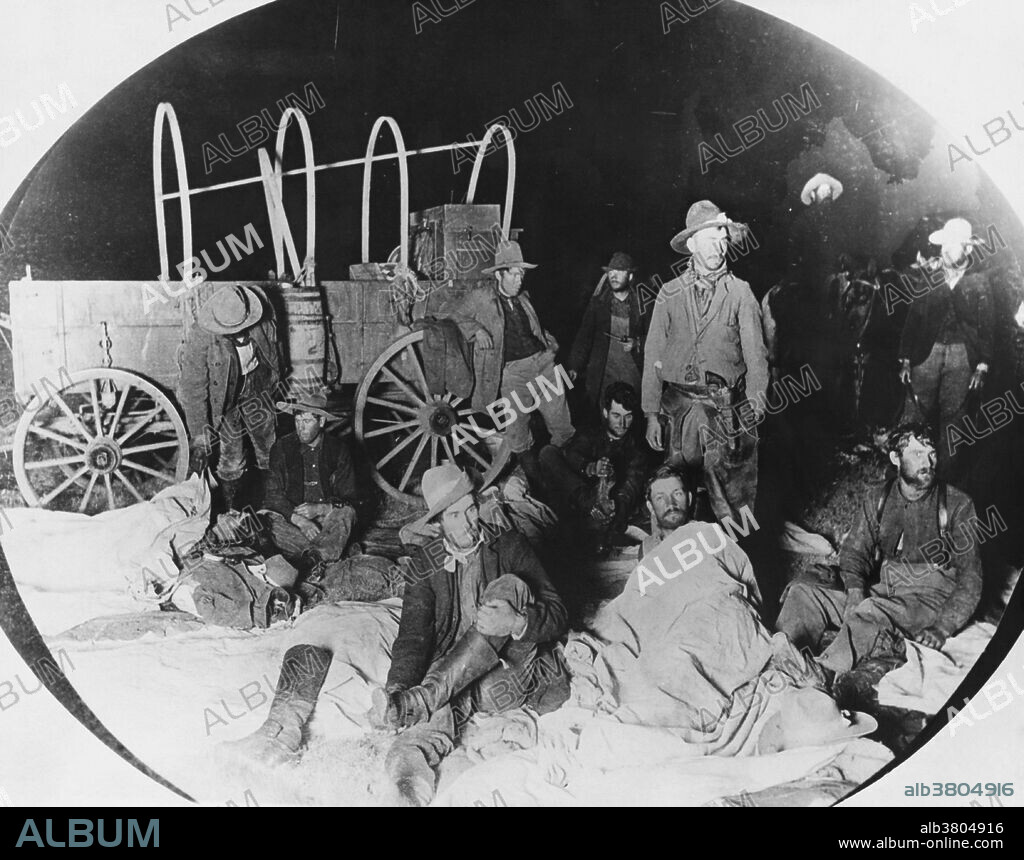alb3804916
Cowboys, 1880s

|
Zu einem anderen Lightbox hinzufügen |
|
Zu einem anderen Lightbox hinzufügen |



Haben Sie bereits ein Konto? Anmelden
Sie haben kein Konto? Registrieren
Dieses Bild kaufen.
Nutzung auswählen:

Titel:
Cowboys, 1880s
Untertitel:
Siehe automatische Übersetzung
A cowboy camp at night in the 1880's, with some cowboys bedding down while others prepare to head out for night duty, watching over the herd. The historic American cowboy of the late 19th century arose from the vaquero traditions of northern Mexico and became a figure of special significance and legend. By the late 1860s, following the American Civil War and the expansion of the cattle industry, former soldiers from both the Union and Confederacy came west, seeking work, as did large numbers of restless white men in general. A significant number of African-American freedmen also were drawn to cowboy life, in part because there was not quite as much discrimination in the west as in other areas of American society at the time. The average cowboy earned approximately a dollar a day, plus food, and, when near the home ranch, a bed in the bunkhouse, usually a barracks-like building with a single open room. Over time, the cowboys of the American West developed a personal culture of their own, a blend of frontier and Victorian values that even retained vestiges of chivalry. Such hazardous work in isolated conditions also bred a tradition of self-dependence and individualism, with great value put on personal honesty, exemplified in songs and poetry. Photograph by F. M. Steele.
Bildnachweis:
Album / Science Source / USDA/Photo Researchers
Freigaben (Releases):
Bildgröße:
4707 x 3710 px | 50.0 MB
Druckgröße:
39.9 x 31.4 cm | 15.7 x 12.4 in (300 dpi)
Schlüsselwörter:


 Pinterest
Pinterest Twitter
Twitter Facebook
Facebook Link kopieren
Link kopieren Email
Email
